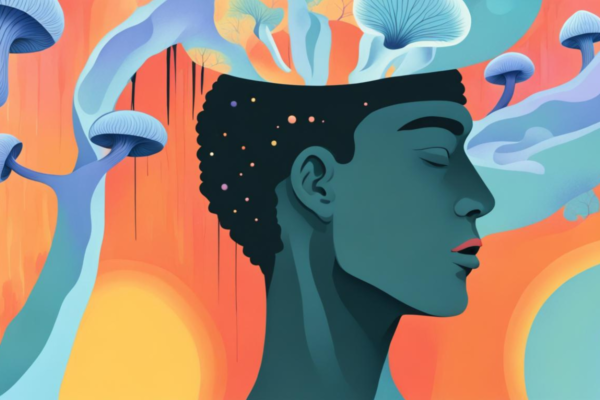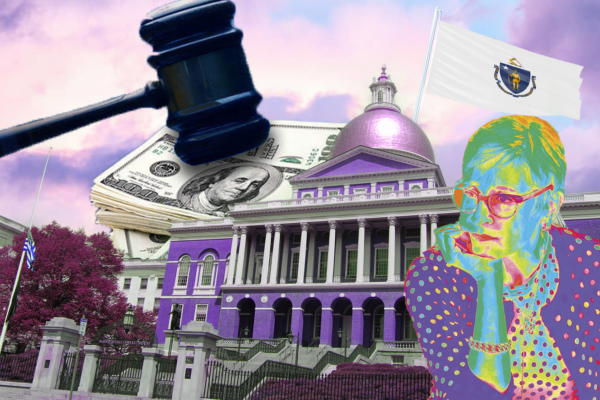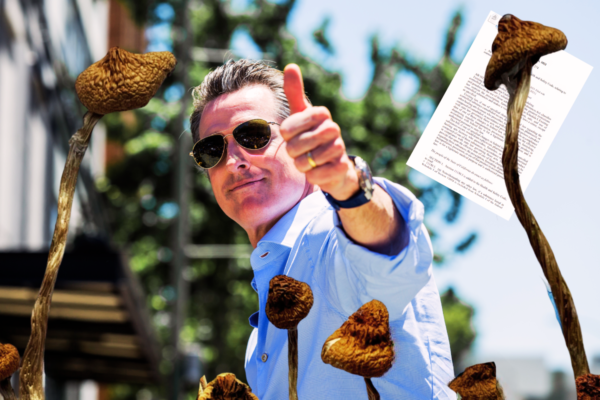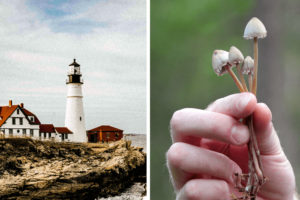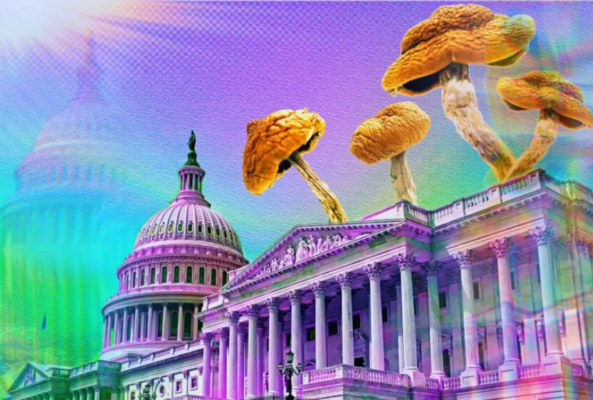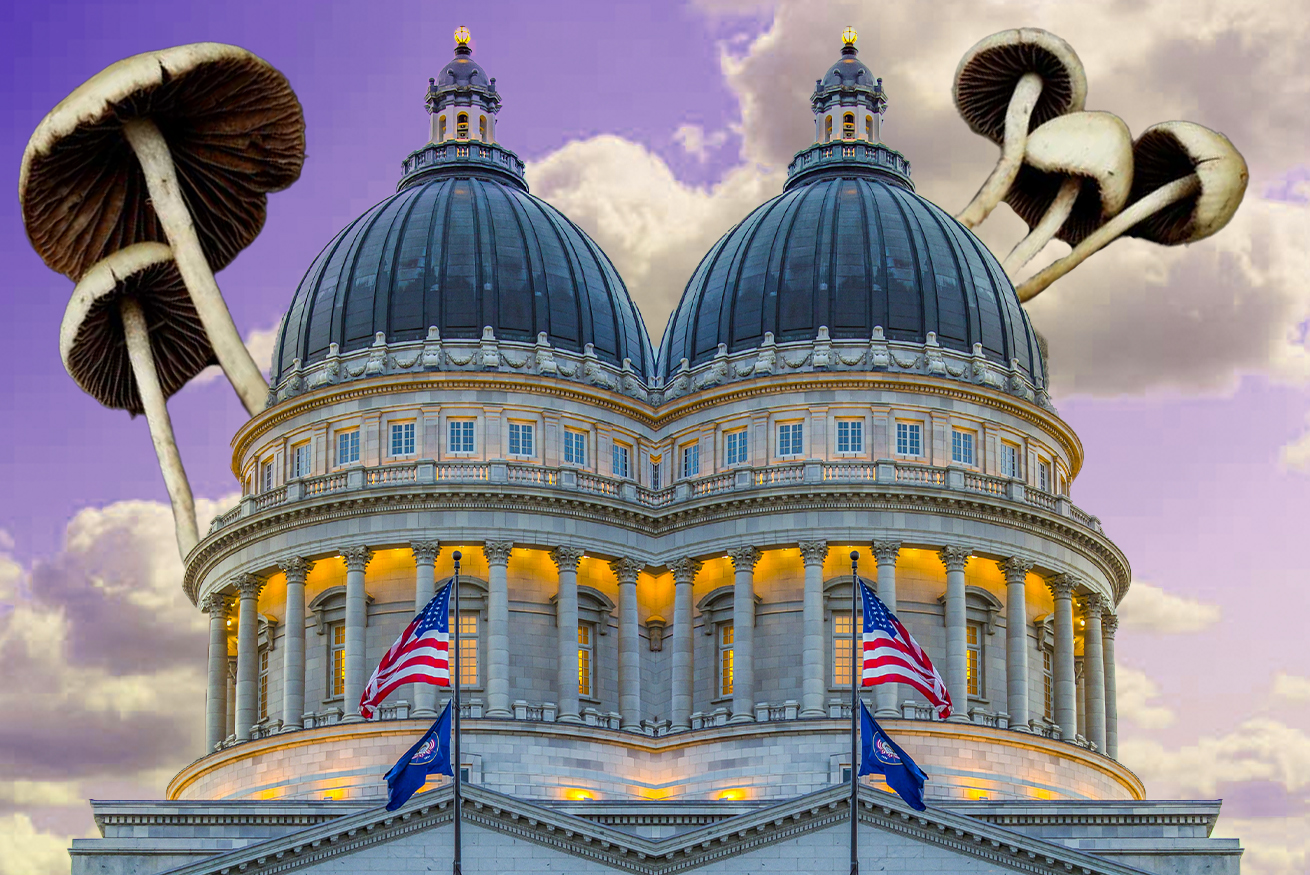
Berkeley has officially decriminalized entheogens. It is one of the two major psychedelic developments that took place in the Californian city this week, the other being the release of a survey that demonstrates that six in ten registered American voters support legalizing regulated therapeutic access to psychedelics.
Also in the state of California, a bill proposed by Senator Scott Wiener (D) to legalize entheogens is one committee away from reaching the desk of Governor Newsom (D). Meanwhile, a recent study analyzed the effectiveness of a psychedelics helpline, and its results were overwhelmingly positive.
Berkeley has decriminalized the possession of entheogens
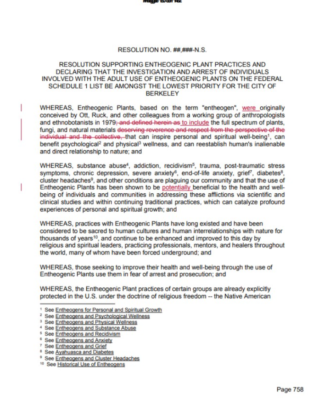
The resolution recognizes the potential that psychedelics have to improve the well-being of Berkeley’s citizens. Amid the substance abuse and mental health crisis in the country, it acknowledges that these substances are effective in treating addiction, depression, and PTSD, and can trigger personal and spiritual growth in their users.
The council also based its decision on the ceremonial use of entheogens in indigenous communities throughout history. The document states that psychedelic use is a long-standing tradition in human cultures and that those who seek to improve their health and well-being by consuming entheogenic plants shouldn’t fear being arrested or prosecuted for it. However, the measure doesn’t authorize the commercialization or large-scale manufacturing of these substances.
Moving forward, no department, agency, board, commission, officer, or employee of the city, including Berkeley’s Police Department personnel shall use city funds or resources to prosecute entheogen users over 21 years of age.
Read also: Berkeley Officially Decriminalizes Possession of Psilocybin Mushrooms and Ayahuasca
UC Berkeley has unveiled the complete results of its psychedelics survey
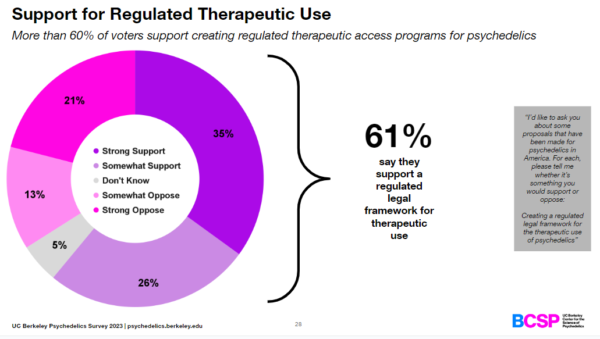
As we previously anticipated, UC Berkeley’s Center for the Science of Psychedelics (BCSP) released the full results of its survey that explored the stance of U.S. registered voters on psychedelics at a briefing last Wednesday.
Beyond the support of 61% of voters for the legalization of psychedelics, the full data also shows that 61% of voters don’t perceive psychedelics as “good for society”, and 69% don’t consider them “something for people like me.” The survey also found that respondents who have previous experience with psychedelics are the most supportive of reforms and hold positive perceptions of these substances.
African-American and Latino communities have less awareness of psychedelic use and its benefits and are less likely to use psychedelics themselves. 80% of liberal voters support legalized therapeutic access, while 66% of moderates and 45% of conservatives do so.
During the briefing, BSCP Co-Founder Michael Pollan, BCSP Executive Director Imran Khan, and Project Lead shared their takeaways from the presented data. Pollan stressed the importance of supporting media debate, legislative reforms, and public education programs with data-driven insights, taking into account the desires, fears, and perceptions of communities across the United States. To this end, the survey provides vital information about the public’s stance on psychedelics.
Imran Khan acknowledged the growing hype for psychedelics and argued that this survey highlights the nuances of the public’s support for the issue, as well as the communities that are being left out of the discussion. Taylor West concluded the briefing by celebrating the fact that U.S. voters are open to policy changes despite their personal reservations about psychedelics.
Californian psychedelic legalization bill passes crucial Health Committee
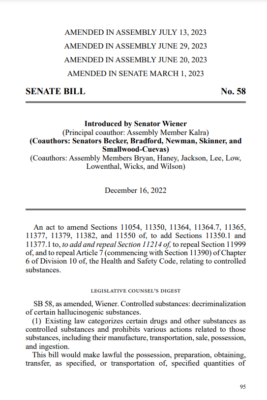
of certain hallucinogenic substances.
After receiving approval from the California Assembly Public Safety Committee two weeks ago, Senate Bill 58 has been approved by the state’s Assembly Health Committee. The bill, presented by Senator Scott Wiener (D), proposes the legalization of entheogens including psilocybin, psilocin, DMT, ibogaine, and mescaline.
Despite Wiener’s doubts regarding the bill’s approval, it advanced through this committee in a 9-2 vote. Prior to the vote, members of the health committee amended the bill to include the creation of a working group to study and propose recommendations to the legislature for establishing regulations for the therapeutic use of psychedelics in supported settings. This group has until January 1, 2025, to submit its findings and recommendations.
It was a small victory, as it is now headed to the Appropriations Committee. This committee was in charge of gutting a similar bill last year, with its members removing the provisions that would have legalized entheogens from the text, forcing Wiener to shelve the legislation.
Given the unexpected success the bill had in the Assembly Health Committee, there is potential for a similar outcome in the Appropriations Committee, as it would finally land on Gov. Gavin Newsom’s (D) desk. Newsom has remained neutral on the matter, so there is no guarantee that he would pass the bill.
Philanthropists Blake Mycoskie and Eugene Jhong have made generous donations for psychedelics research
The founder of Toms Shoes, entrepreneur, and philanthropist Blake Mycoskie has pledged to invest $100 million to support psychedelics research, in hopes of fighting back against the mental health crisis.
He expressed his frustration with currently available treatments for depression, PTSD, and other mental health problems, which are “modestly effective at best.” Psychedelics helped him through a time of “tremendous emotional and mental pain,” highlighting an ayahuasca trip as the key to coping with the pain and reconnecting with his faith. He wishes to increase access to psychedelic therapy, confident that it can be the solution for many people in need.
Mycoskie hopes his donation inspires other wealthy individuals and foundations to financially contribute to the cause. His philanthropic efforts, which date back to 2020, helped fund UC Berkeley’s Psychedelics Survey, which the Berkeley Center for the Science of Psychedelics (BCSP) thanked him for.
Software developer and philanthropist Eugene Jhong has also made a contribution towards psychedelics research, donating $1.5 million to UC San Diego. His donation will fund a study carried out by the Division of DMT Research at the UC San Diego Psychedelich Health and Research Initiative that seeks to learn more about the biological and psychological effects of DMT in humans.
There is much to learn about DMT’s effects, and they are difficult to analyze because of its short-lasting peak psychedelic effects. The study will implement continuous intravenous administration of DMT to a human participant to prolong its peak and gain access to its “extended-state” visions.
The end goal is to assess whether DMT could be used therapeutically to address pain, trauma, and medical conditions related to the brain.
Research into psychedelic helpline demonstrates the usefulness of trip sitters in de-escalating bad trips
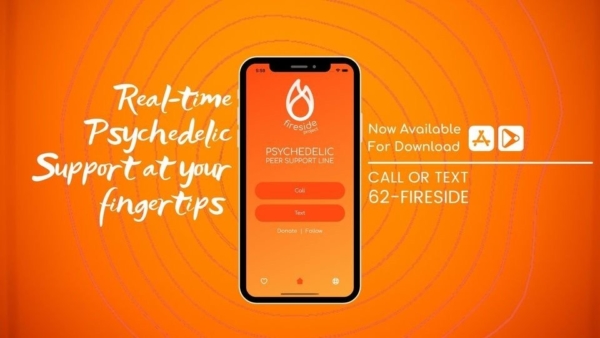
New research published in Psychedelic Medicine aimed to determine if a psychedelics helpline could help reduce the risks associated with nonclinical psychedelics use. Outside of monitored clinical settings, these substances could potentially produce psychological harm and place a burden on emergency services, especially if the users decide to trip by themselves.
The researchers gathered data from a psychedelic helpline operated by Fireside Project, which is staffed by trained volunteers who receive 50 hours of training. Mollie M. Pleet, the author of the study, was aware of the benefits of a “trip-sitter” for psychedelic risk reduction as she volunteered as a trip-sitter at many music festivals, helping users navigate the complicated emotions that a psychedelic journey can bring.
The helpline sent callers anonymous surveys 24 hours after their conversation, receiving 848 responses regarding their satisfaction with the service. It also made the peer-support specialist fill out call logs after each conversation. The logs included specific questions with answer choices.
40% of the callers had taken psychedelics by themselves, which highlights the importance of a “sitter” or, if unavailable, a helpline. The researchers found that the helpline assisted 65.9% of callers in de-escalating situations of psychological distress. Without the helpline, 23.9% of them could have experienced harm, 12.5% would have called 911, and 10.8% would have gone to the emergency room.
Encounters with law enforcement or visits to the emergency room during a psychedelic crisis could worsen distress, which is why having an alternative assistance service is so important.
